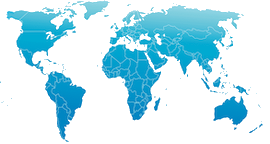africa


Africa is surrounded by the Mediterranean Sea to the north, the Isthmus of Suez and the Red Sea to the northeast, the Indian Ocean to the southeast and the Atlantic Ocean to the west.
time zones
weather | living earth

It is the second largest continent after Asia, covering about one-fifth of the total land surface of Earth, with a total land area of about 30.3 million km2.
With 1.4 billion people it accounts for about 18% of the world's population.
Despite a wide range of natural resources, Africa is the least wealthy continent per capita.
This can be attributed to different factors including geography, climate, tribalism, colonialism (and neocolonialism), the Cold War, lack of democracy, and corruption.
the living earth
It contains 54 fully recognised sovereign states, eight cities and islands that are part of non-African states, and two de facto independent states with limited or no recognition.
This count does not include Malta and Sicily, which are geologically part of the African continent.
Despite a wide range of natural resources, Africa is the least wealthy continent per capita and second-least wealthy, ahead of Oceania.
This can be attributed to different factors including geography, climate, tribalism, colonialism (and neocolonialism), the Cold War, lack of democracy, and corruption.
Despite this low concentration of wealth, recent economic expansion and the large and young population make Africa an important economic market in the broader global context.
northern region
islands of macaronesia
central region
central african republic  angola
angola burundi
burundi
democratic republic of the congo equitorial guinea
equitorial guinea gabon
gabon
western region
benin burkina faso
burkina faso côte d’ivoire
côte d’ivoire
sierra Leone sudan
sudan saint helena
saint helena
eastern region
réunion seychelles
seychelles south sudan
south sudan















































